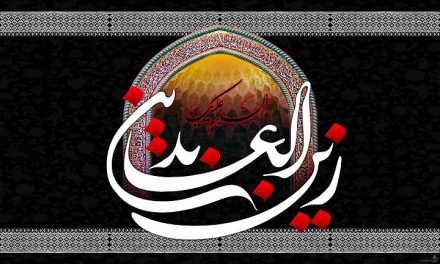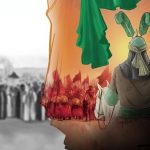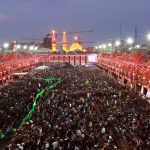
Here are some famous sayings of Imam Ali (AS), the first Imam of Shia Muslims:
* How I wonder at the mentality of a miser; fearing poverty he takes to stinginess and thus hastily pushes himself head-long into a state of want and destitution; he madly desires plenty and ease but throws it away without understanding. In this world he, of his own free will, leads the life of a beggar and in the next world he will have to submit an account like a millionaire.
* Whoever is not diligent in his work will suffer sorrow and loss; whoever has no share of Allah in his wealth and in his life then there is no place for him in the realm of Allah.
* If you understand the majesty of the Lord then you will not attach any importance to the universe and its marvels.
* An angel announces daily: “The birth of more human beings means so many more will die; the collection of more wealth means so much more will be destroyed; the erection of more buildings means so many more ruins in time to come.”
* A friend cannot be considered as a friend unless he is tested on three occasions: in time of need, behind your back, and after your death.
* This world is not a place of permanent settlement, it is a passage, a road on which you are passing; there are two kinds of people here, one is the kinds who have sold their souls to eternal damnation. The other is of those who have purchased their souls and freed them from damnation.
* Daily prayers are the best medium to advance oneself in favor of the Lord. Haj is a Jehad (Holy War) for every weak person. For everything that you own, there is Zakaat, a tax paid to the Lord, and the tax of your health is that you keep fast. The best Jehad of a woman against men is to render his home life-pleasing and congenial.
* If you want to pray to the Lord for better means of subsistence then first give something in charity.
* Sorrow will make you half as decrepit as old age.
* Many persons get nothing out of their fasts but hunger and thirst; many more get nothing out of their night prayers but exertions and sleepless nights. Wise and sagacious persons are praiseworthy even if they do not fast and sleep during the nights.
* Remember that there are three kinds of people, one kind is of those learned people who are highly versed in the ethics of truth and philosophy of religion, second is the kind of those who are acquiring the above knowledge, and the third is that class of people who are uneducated. They follow every pretender and accept every slogan, they have neither acquired any knowledge nor have they secured the support of firm and rational convictions.
* Remember Kumail, Knowledge is better than and superior to wealth because it protects you and you have to guard wealth because wealth decreases if you keep on spending it and knowledge increases the more you make use of it; and because what you get through wealth disappears as soon as wealth disappears.
* A man can be values through his sayings.
* One who does not realize his own value is condemned to utter failure. (Every kind of complex, superiority or inferiority is harmful to man.)
* One who adopts patience will never be deprived of success though the success may take a long time to reach him.
* One who assents or subscribes to the actions of a group or a party is as good as if he has committed the deed himself. A man who joins a sinful deed makes himself responsible for two-fold punishments; one for doing the deed and the other for assenting and subscribing to it.
* One who enters the places of evil reputes has no right to complain against a man who talks evils of him.
* One who guards his secrets has complete control over his affairs.
* Oppression and tyranny are the worst companions for hereafter.
* There is enough light for one who wants to see.
* Often the inordinate desire to secure a single gain acts as a hindrance for the quest of many profitable pursuits.
* People often hate those things which they do not know or cannot understand.
* One who seeks advices learns to recognize mistakes.
* One who fights for the cause of Allah secures victory over his enemies.
* When you feel afraid or nervous to do a thing then do it, because the real harm which you may thus receive is less poignant than its expectation and fear.
* Your supremacy over others is in proportion to the extent of your knowledge and wisdom.
* The best way to punish an evil-doer is to reward handsomely the good deeds of a good person.
* Obstinacy and stubbornness will not allow you to arrive at a correct decision.
* Deficiency will result in shame and sorrow, but caution and foresight will bring peace and security.
* To keep silent when you can say something wise and useful is as bad as to keep on propagating foolish and unwise thoughts.
* If two opposite theories are propagated, one will be wrong.
* One who starts tyranny will repent soon.
* One who cannot benefit by patience will die of grief and excitement.
* If you find that somebody is not grateful for all that you have done for him then do not get disappointed because often you will find that someone else feels under your obligation though you have done nothing for him and thus your good deeds will be compensated, and Allah will reward you for your goodness.
* Hearts (minds) have the tendencies of likes and dislikes, and are liable to be energetic and lethargic, therefore, make them work when they are energetic and on subjects which they like.
* The destitute is the messenger of Allah. Whoever denies him denies Allah and whoever gives him gives Allah.
* Avarice is disgrace; cowardice is a defect; poverty often disables an intelligent man from arguing his case; a poor man is a stranger in his own town; misfortune and helplessness are calamities; patience is a kind of bravery; to sever attachments with the wicked world is the greatest wealth; piety is the best weapon of defense.
* He who is greedy is disgraced; he who discloses his hardship will always be humiliated; he who has no control over his tongue will often have to face discomfort.
Source: shafaqna.com










